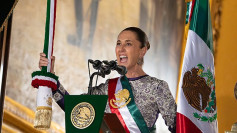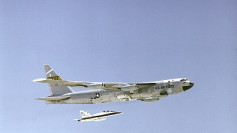The United States has offered a political settlement plan for Venezuela, proposing to remove sanctions if the president, Nicolás Maduro and his rival, Juan Guaidó, stand aside and shift power to their supporters' provisional government.
All political prisoners will be freed under the "economic transition system," and all foreign forces - mainly Cuban - will withdraw.
A five-man state council will be formed, with two opposition members, two from Maduro's Socialist Party and the fifth selected by the other four. Currently in place will be the military high command.
In a change after more than a year of US- led attempts to overthrow the leftist Maduro, US State Secretary Mike Pompeo said Maduro and Guaido would create a transitional government to organize elections in six to 12 months time.
But Pompeo indicated that there was no change in US priorities, saying that Guaido was welcome to run in future elections while Maduro had to quit power. "We have made it clear all along that Nicolas Maduro will never rule Venezuela again," Pompeo told reporters.
Following repeated U.S. attempts to overthrow him, Maduro has held on to power and shown no desire to seriously negotiate an end to his rule. As such, the announcement on Tuesday may be seen as an attempt by the administration to cut and carry on its losses.
The plan comes less than a week after the U.S. government took a more confrontational stance on allegations of "narco-terrorism," charging Maduro and more than a dozen other current and former top Venezuelan leaders, accusations he denied as baseless and discriminatory.
The US and the EU will lift sanctions against the current leadership. Broader sanctions on oil sector in the country will be suspended after all foreign powers had left the region. After the free elections all sanctions will be scrapped.
Elliott Abrams, Venezuela's US negotiator, said the United States already acknowledged Guaido as the acting president. Some 60 countries share Guaido's US recognition and endorse Maduro's replacement, who is overseeing over a collapsing economy that has driven millions to depart. But Maduro stays in power with military backing as well as Russia and China.
The Trump administration hopes an energy conflict between Russia and Saudi Arabia that has led to the plunging price of oil - Maduro's key financial lifeline - and the the threat of coronavirus would help make the leftist leader and his loyalists more pliable.
Venezuela's foreign ministry rejected the U.S. plan as "an attempt to achieve diplomatic advantage amid a horrific pandemic." Abrams called the Venezuelan government's response "totally predictable."






